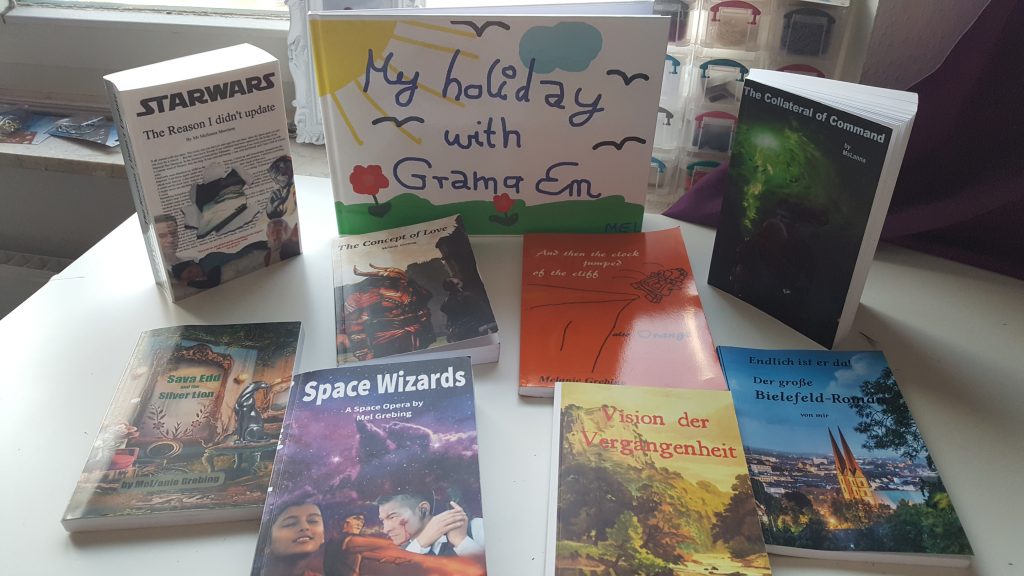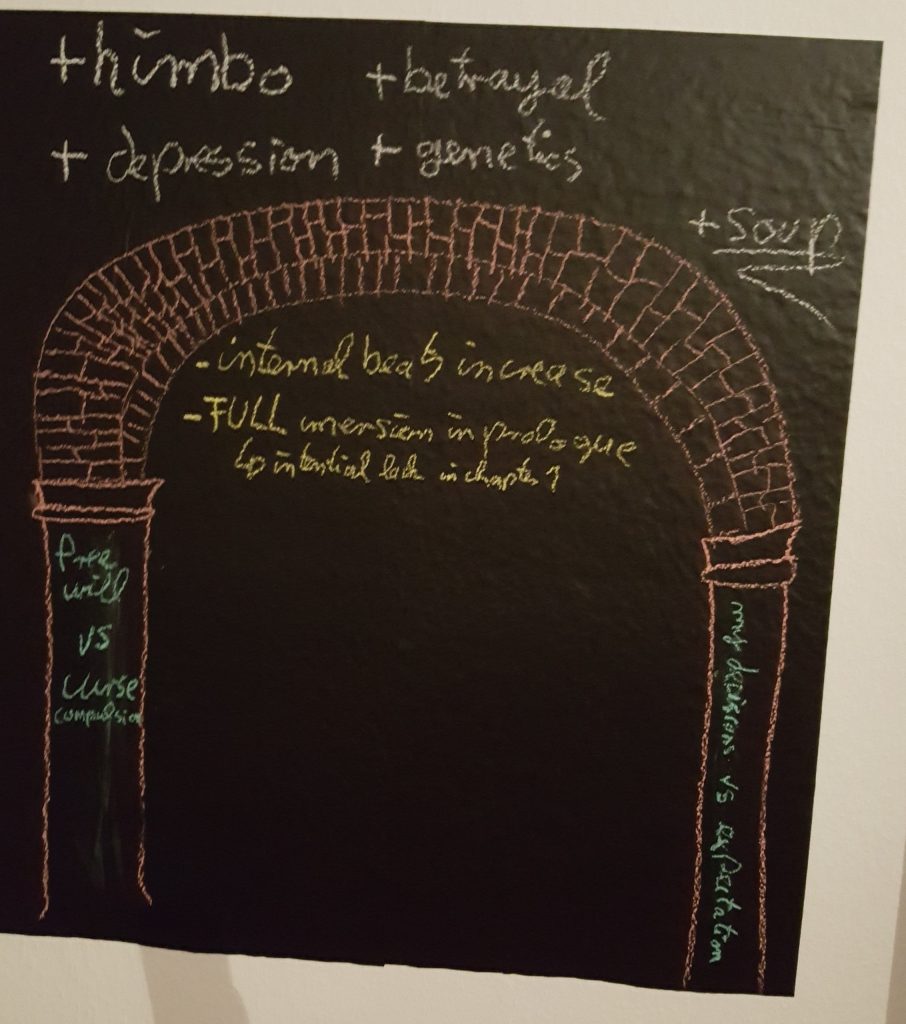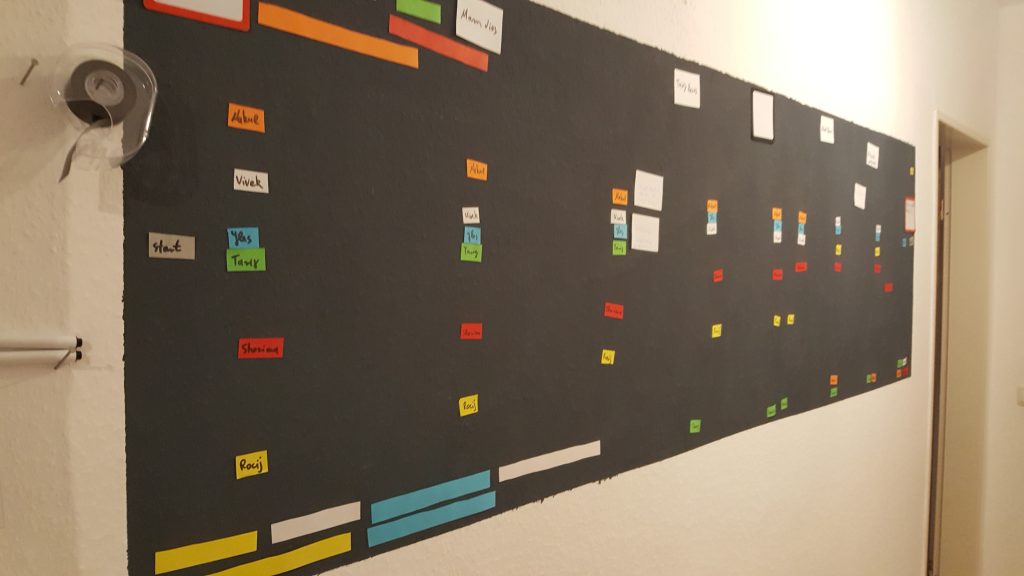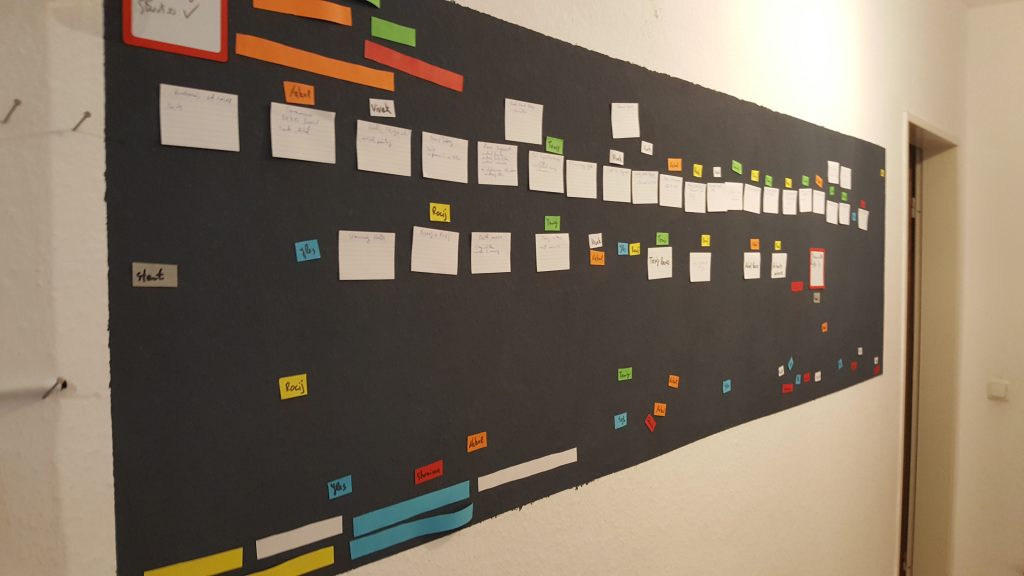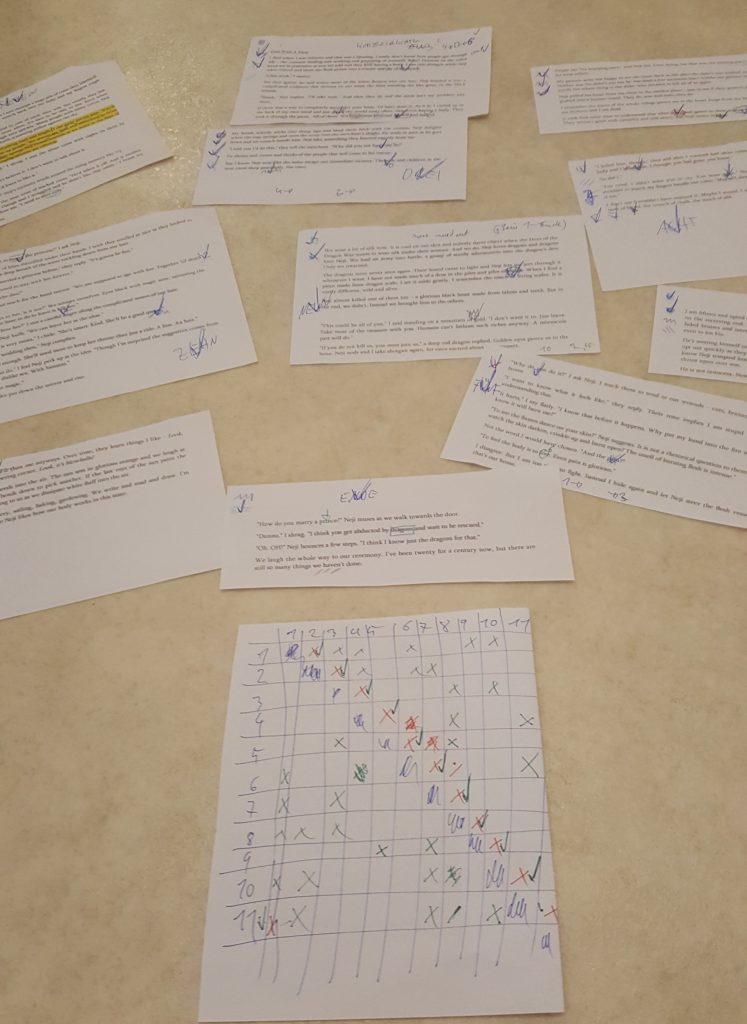You haven’t heard from me in a while. I have two blog posts flying around unposted and yet… Anyway, here I am, for now with what will have to pass for New Year’s Resolutions.
1. Less AuDHD exhaustion
I will take a closer look at all the things I do and how much energy they take and make sure I don’t overdo. That will suck because there is not much I can do to make work less exhausting. I had a great streak last summer where there was about nothing to do. Did wonders for my mental health. But I am already seeing the exhaustion creep in at the corners.
I will observe it (and me) and I will find a way to reduce it. Making my reduced hours official will be one step. Maybe I can get more than 2 hours per week less for the same pay. Here is hoping.
2. Less beating myself up
I’m still very good at it. Therapy helps me to do it less but I am Very Bad at finding out what the actual problem is and get hung up on symptoms. Being kind to myself is great (and helps a lot) but it won’t work unless I understand where to be kind and to apply changes that help.
Like, telling myself it’s fine is one thing. But telling myself where it comes from and why it happened and that it is fine because I am still learning myself and it will pass and next time I will do better because I now know – that is better help for me.
3. Therapy
I am not very good at therapy, but my therapist is so we are making progress. Small, erratic and unpredictable, but it is there. I note at the strangest times. I am happy about what we achieved already.
I will keep going. Whatever issues will pop up, I will tackle them best as I can and work on them as much as I can and it will be a little better afterwards.
4. Trans
It will take so fucking long but by the winds, I will get it done. A first appointment with an endocrinologist will be in August. My gynaecologist sees me in two weeks. I don’t even know when to start scheduling consultations for the surgery in specialised hospitals.
This is dragging its feet and I hate it.
But at the end waits a body that matches my identity so I will plod on. At the moment, it is the issue that gives me the most breakdowns. I may or may have googled “boob guillotine”. And it takes so much more effort to care for a body not yours. 😔
5. Writing
I shall finish the last BG3 fanfic. I fucking well will.
I will get the best and most out of my WriteHive mentorship.
If allowed with the above, I will self-pub my first novel. And novelette.
I will probably write another book. I tend to do that. I won’t force it. Once the mentorship is over, I hope to et my hands on The Losing Game again. Need to dissect that bitch and put the pieces together correctly. Getting Shadows at Night or Sava II over the 1/3 and 2/3 marks would be good, too.
6. Gaming
I’ll finish Veilguard and do some more romances. Lucanis is on the menu. As is Harding and maybe Emmrich. Taash keeps gutting me unexpectedly. I love that Qunari. Actually surprised I finally got a Qunari to romance I want to romance.
Get back to Baldur’s Gate three and finish a Melta run with patch 7.
Melta runs in the other 3 Dragon age games. Finish the Melta run of Mass Effect.
7. Sewing
Sew some more trousers. And some more light summer trousers. The thin fabric wasn’t made to last. 😔
Learn to let go. I have sewn many items I do not wear. I have to let them go somehow. (Not the shirts I just need – no boobs for. I will hang on to those until I have no boobs.)
Another cosplay. Maybe the paladin (oath of devotion) from Baldur’s Gate pre patch 7. I can’t believe they changed the colours: I do not like the new colours. Maybe the blue coat my Rook wears in Veilguard. Both would be very difficult. But I like a challenge in cosplay.
8. Joy
There are many good things coming for me. Holiday with my sister, meetings with friends, conventions. I will enjoy the fuck outta them. I will plan many more good things. This is my life and I will shape it into something I love doing. 😤
